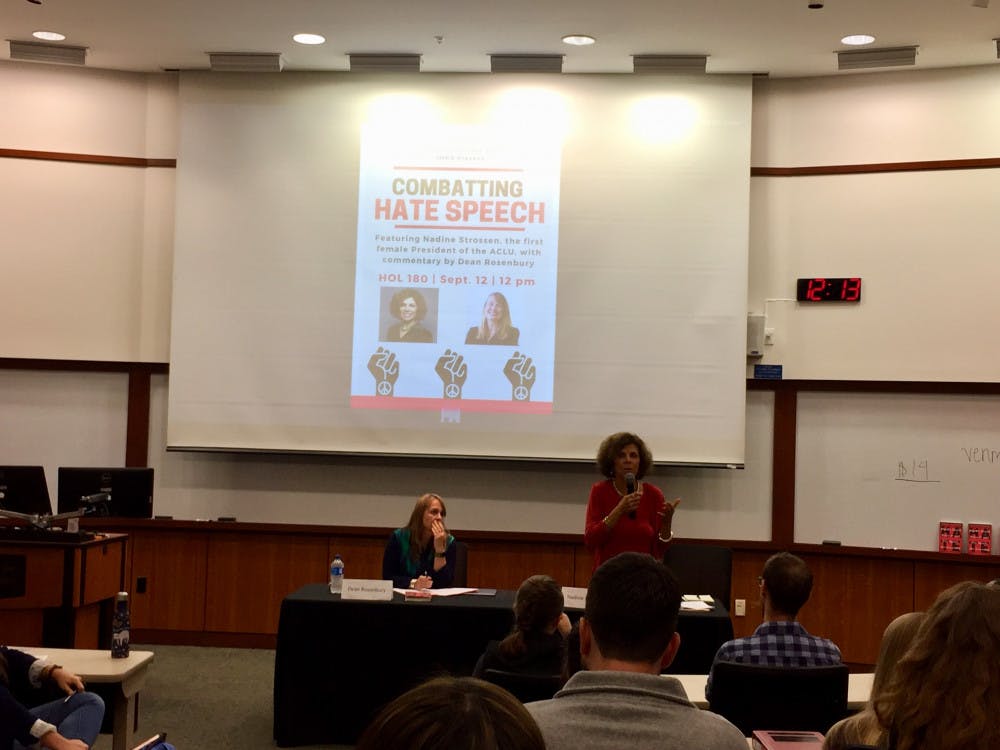While former American Civil Liberties Union president Nadine Strossen chatted with a group of students after a discussion about censorship, John Cervera clutched a copy of her book in his hand.
The 23-year-old UF law junior waited patiently at a desk in the front row for Strossen to autograph his copy.
“That’s a president of ACLU,” Cervera said. “You don’t meet one of those everyday.”
Cervera and about 110 other students gathered in the Holland Law Center at the Levin College of Law to listen to Strossen discuss how to combat hate speech. There was standing room only as law students talked about white nationalist Richard Spencer and asked Strossen questions about whether hate speech is protected under the First Amendment.
Federalist Society at UF Law president Tiffany Batten said the event was scheduled during the free time law students have from noon to 1 p.m.
Strossen and UF Law Dean Laura Rosenbury spoke about their positions on regulating hate speech and opened the floor for questions for the last 30 minutes of the event.
“I’m hoping students can feel that this is a safe space to talk about hate speech,” Batten said.
The Federalist Society at UF Law, a conservative and libertarian law student group, co-hosted the event with the UF Law Association for Women, the American Constitution Society, John Marshall Bar Association and Gator Law ACLU, Batten said.
The Federalist Society’s national organization paid Strossen an honorarium of $1,000 to speak at UF.
Strossen argued against censorship laws because she said hate speech regulations disproportionately silence marginalized groups who defend themselves against hate.
She cited Twitter’s practice of censoring the owners of Black Lives Matter accounts because they were defending themselves against hate speech. She also said the government should not be given too much power to decide which speech is or isn’t hateful.
“As well-intended as that censorship is, it actually does more harm than good,” Strossen said.
Peaceful protests and federal laws that punish hate crimes are effective ways to combat hate instead of censoring hate speech, Strossen said.
Two months after Spencer held a speaking event at UF, Strossen emailed UF President Kent Fuchs in support of how he allowed Spencer to speak but encouraged students to stay away from the event.
“I thought he struck the balance absolutely perfectly,” she said.
Rosenbury argued the different side of the same coin. She said hate speech should be regulated on college campuses for the sake of a diverse student population to feel included.
“In an ideal world, he would not have been forced to allow Richard Spencer to speak on our campus,” she said.
Cervera said he was happy to hear Rosenbury offer a different perspective and to see students ask compelling questions. Free speech is more complicated than a black or white answer, he said.
“You need to fight hate speech with even more speech,” Cervera said. “That’s the only way our society could recognize dissenting and progressive voices.”
Contact Amanda Rosa at arosa@alligator.org and follow her on Twitter at @AmandaNicRosa
Former ACLU president Nadine Strossen talks about free speech at the UF Levin College of Law






